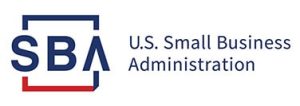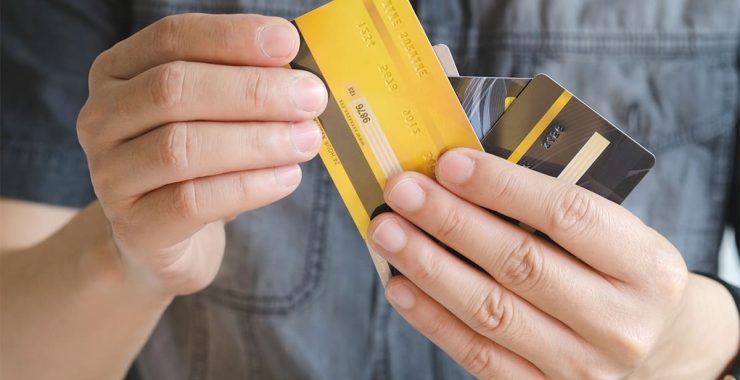Business Valuations and Financing
How to Leverage SBA Loans to Start, Grow or Buy a Business
Small businesses are the backbone of the American economy, and the Small Business Administration (SBA) is dedicated to helping them grow and succeed. That’s why the SBA developed SBA loans, a financing alternative specifically for small business owners that may not qualify for traditional small business loans.
SBA loans are an excellent way for small businesses to get the financing they need to start or grow their business, and for buyers to fund the acquisition of existing businesses.
Use our beginner’s guide to leveraging SBA loans to get the financing you need to buy, start, or grow a small business.
What are SBA loans, and what benefits do they offer small businesses?
SBA loans are government-backed loans that offer favorable terms to small business owners and buyers, including lower down payment requirements and longer repayment terms. The SBA helps business owners and buyers get bank loans that they wouldn’t typically qualify for by guaranteeing a percentage of the loan.
Below are four ways to leverage SBA loans to get the financing you need for your business.
1. Use an SBA loan to grow your existing business or start a new business.
An SBA loan can be used to start or grow a small business. This type of loan can provide businesses with the financing they need to get up and running or expand their operations.
2. Use an SBA loan to buy an existing business.
If you’re working to buy an established business or franchise, SBA loans are an excellent way to fund the change-of-ownership transaction. Compared to typical loans, which require at least 20 – 30 percent down payments, the SBA only requires a 10 percent equity injection from the buyer.
3. Use an SBA loan for working capital.
An SBA loan can also be used for working capital, which is money used to cover day-to-day expenses like payroll, inventory, and marketing costs.
4. Use an SBA loan to finance equipment, fixtures, inventory, and more.
An SBA loan can be used to purchase a variety of business assets, including real estate, furniture, equipment, and inventory for your small business.
How do you qualify for an SBA loan?
To qualify for an SBA loan, you’ll have to meet specific eligibility requirements based on location, company size, and owner’s equity in the business. Requirements may vary from one loan program or lender to the next, but generally, you’ll need to:
-
Operate a small, for-profit business.
Only small, for-profit businesses that are officially registered, operate legally, and conduct “acceptable” business activities can apply for an SBA loan. The SBA’s definition of a “small” business varies by industry. To determine if your business is considered “small” by SBA standards, use the Size Standards Tool.
-
Conduct business in the United States.
To qualify for an SBA loan, your business must have a physical location and operate in the United States.
-
Have a sound business plan.
Your business plan should demonstrate that your business is viable and has the potential for success. Typically, it’s easier to obtain an SBA loan for business acquisition because the seller has already proven the business is sound and can provide financial statements to prove it.
-
Have reasonable equity invested in the business.
The SBA requires that business owners have reasonable equity invested into the company in order to qualify for an SBA loan. The owner should also have used alternative financing options, like personal assets, prior to seeking loan assistance.
-
Be ready to commit to repaying the loan.
You’ll need to show that you’re capable of repaying the loan in full and on time. For entrepreneurs using the loan to buy an existing business, lenders often look at the company’s historical performance to determine the likelihood that you’ll be able to repay the loan.
What are the terms of an SBA loan?
Terms of an SBA loan, like interest rates, fees, and repayment terms, are negotiated between the lender and borrower and vary depending on the type and size of the loan. The most common type of SBA loan, the basic 7(a), generally offers lower interest rates and longer repayment terms than other conventional non-SBA bank loans. Terms range from seven to 25 years, and loan amounts can be for as much as $5 million, with maximum SBA exposure of $3.75 million.
Buy an Existing Business with Your SBA Loan: How Sunbelt Can Help
If you’re interested in buying an established business using an SBA loan, Sunbelt Business Brokers is here to help. As one of the largest business brokerage firms in the country, we have been representing buyers and sellers for decades and have established relationships with SBA lenders.
For buyers, we can help connect you with an SBA Preferred Lender to receive the financing you need to purchase your dream business. Our Preferred Partner, Live Oak Bank, is the top SBA lender in the United States and helps hundreds of businesses through the loan process each year.
SBA Pre-Qualify Your Business for Sale with Sunbelt
In addition to helping buyers secure financing through the SBA, our business brokers can also help sellers by getting their business for sale SBA pre-qualified. SBA pre-qualification can be a huge selling point for buyers because it takes the legwork out of finding a lender to finance the transaction. By pre-qualifying a business for an SBA loan, the lender is saying that so long as the potential buyer meets minimum requirements, they will grant the loan due to the company’s historical performance and industry outlook. Ultimately, this can make a small business listing more appealing, maximize the sale price, and increase the speed of the transaction.
Ready to begin your search for the ideal business and secure SBA financing? Contact a Sunbelt Business Brokers office near you for assistance.




